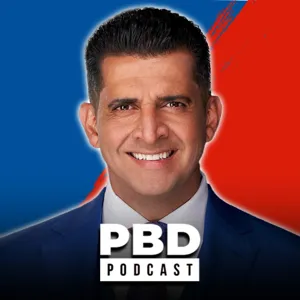Podcast Summary
The Complex Motivations Behind the Use of Fentanyl in the Drug Trade: The use of Fentanyl in the drug trade is driven by a complex web of motivations, including the desire for increased potency and profit, the availability of cheap and easy-to-produce Fentanyl, and the need to stay competitive in a crowded market.
Key takeaway from the Search Engine podcast episode is that the reason drug dealers poison their customers with Fentanyl may not be as simple as it seems. The podcast explores this question from two perspectives: that of the undercover reporter, who investigates the origins of Fentanyl as a street drug, and that of the dealer, who explains the logic behind using Fentanyl in their products. The podcast reveals that Fentanyl was originally invented by a Belgian doctor named Paul Janssen in 1959 as a superior hospital drug. However, its production and distribution have since become illegal and dangerous, leading dealers to cut their drugs with Fentanyl to increase potency and profit. The podcast sheds light on the complex and often contradictory motivations behind this dangerous trend, challenging our assumptions about the logic of the drug trade.
The rise of Fentanyl as the deadliest drug for Americans under 45 in the late 2010s was due to its affordability and profitability in clandestine labs in China.: Fentanyl's production cost and addictive nature made it an attractive option for dealers, leading to its rapid spread in the US despite initial underestimation by authorities.
The affordability and profitability of producing Fentanyl, a synthetic opioid, in clandestine labs in countries like China, contributed significantly to its rapid rise as the deadliest drug for Americans under 45 in the late 2010s. Despite the DEA's belief in 2015 that Fentanyl was not a concern due to its high potency and low consumer demand, the drug's production cost and addictive nature made it an attractive option for dealers. The constant creation and banning of Fentanyl analogs in China created a gray market for these chemicals, leading to their availability and eventual entry into the US. This case serves as a reminder of the importance of monitoring the production and distribution of synthetic drugs and the potential consequences of underestimating their impact.
Undercover Journalism: Going the Extra Mile to Uncover the Truth: Journalists may pose as criminals, lie, and go through vetting processes to uncover illicit activities, putting themselves at risk for personal harm and legal consequences.
Undercover journalism involves risk and deception. In this case, a journalist posing as a drug dealer named Johnny Webster managed to meet with a lab owner in Shanghai who sold fentanyl analogs. The journalist had to convince the lab owner that he was trustworthy, and they went through a vetting process, which included lying about being a drug dealer and revealing his supposed friend's name. The meeting took place at the lab owner's apartment, and they went to lunch at a local Chinese restaurant before the journalist was deemed trustworthy. The lab itself was functional but had an illicit feel to it. The journalist recorded the entire meeting without the lab owner's knowledge. This experience highlights the lengths journalists may go to in order to uncover the truth, but it also involves a significant amount of risk and deception.
The opioid crisis: a continuation of an ancient problem: The opioid crisis is a complex issue rooted in ancient history, with fentanyl production in China and its smuggling into the US fueling the modern epidemic
The opioid epidemic in the United States is a complex issue with deep historical roots. Ben's experiences in China highlight the intricate relationship between legitimate businesses and underground drug operations. Fentanyl, a potent opioid, is produced in China and often smuggled into the US through various means, including cartels and unconventional methods like surfing around the border wall. The demand for fentanyl in the US didn't originate from Mexican cartels but from consumers who became addicted through various means. The opioid crisis is a continuation of a 5000-year-old problem with opiates and opioids, which have been used for pain relief and euphoria since ancient times. The stories around these drugs, their usefulness, and their danger, are constantly evolving and contested. It's essential to remember that the opioid crisis is not a new problem but a continuation of an ancient one with modern twists.
The stories we tell about drugs matter: Accurate and truthful information about drugs is crucial to prevent misuse and addiction. Misrepresentations of drugs can lead to serious consequences, as seen in the opioid crisis.
The perception and story around a drug, not just its inherent properties, significantly impact its safety and potential for misuse. Morphine was once a popular painkiller, but was replaced by heroin, which was later seen as dangerous due to cultural narratives. Similarly, OxyContin, a powerful opioid introduced in the late 1990s, was marketed as less addictive than previous opioids due to a time-release coating. However, it was later discovered that the pills could be crushed and abused, leading to widespread addiction and the opioid epidemic. This tragic situation underscores the importance of accurate and truthful information about drugs, as well as the potential consequences of misleading narratives. The opioid crisis, fueled in part by the misrepresentation of OxyContin, paved the way for the rise of deadly drugs like Fentanyl. It's crucial to remember that the stories we tell about drugs can have significant real-world impacts.
The Prevalence of Fentanyl in the Opioid Crisis: Fentanyl's availability, shorter high, and challenging addiction make it a significant contributor to the opioid crisis. Users seek more frequently due to dissatisfaction and express frustration over its prevalence in the market.
The opioid crisis in America has led to a surge in Fentanyl use due to its availability and low production costs. This synthetic opioid, which is often produced in Mexico and distributed by regional gangs, provides a shorter high than heroin, leading users to seek more frequently. Users report a less satisfying high compared to heroin and express frustration over its prevalence in the market. The high from Fentanyl is described as less soulful and less desirable than heroin, which has a romanticized image from the past. The short duration of the Fentanyl high leaves users scrambling for more, making it a challenging addiction to manage. The rise of Fentanyl has led to a nostalgia for heroin among some users, adding to the complexities of the opioid crisis.
Dealers use fentanyl to boost business, not harm it: Dealers add fentanyl to heroin to create stronger products, increase customer satisfaction, and even use fatal overdoses as advertisements, while adulteration of cocaine is less common due to different user preferences and lack of complaints.
Drug dealers adulterate their drugs with potentially deadly substances like fentanyl not because it's bad for business, but because it can actually be beneficial in the long run. During the early stages of the fentanyl crisis, dealers would mix small amounts of fentanyl into heroin without users realizing it, leading to stronger products and increased customer satisfaction. Nowadays, many heroin users have accepted fentanyl as a fact of life, and even death from an overdose can serve as advertisement for dealers. However, when it comes to drugs like cocaine or weed, where users are seeking different types of highs, dealers are less likely to adulterate with fentanyl as it's not as profitable or desirable. The prevalence of adulterated cocaine in America and the lack of complaints from users contribute to the continuation of this practice in the opioid market.
Understanding the chaos in illicit drug markets: Dealers in illicit drug markets engage in dangerous practices, such as adulterating drugs with fentanyl, due to the chaotic and unregulated nature of their industry.
Illicit markets, particularly those dealing with highly addictive and dangerous substances like drugs, function differently than normal markets. Dealers putting fentanyl in drugs like cocaine is not surprising to some, given the chaotic nature and lack of regulation in these markets. Fentanyl is just the latest instance of deep adulteration in American drugs. Ben Radley, a guest on the podcast, argues that these dealers' behavior is not a mystery, but rather desperate and not very smart actions from people in a dangerous and unregulated industry. Another dealer, who does not sell fentanyl, echoed this sentiment, albeit with less charitable language. The podcast's host expressed frustration with the senselessness of it all, but next week, they will speak with a former drug dealer who has sold and used Fentanyl, who may provide some insight into why this is happening. The host emphasizes that they will continue to explore this topic, as it's important to understand the motivations behind such dangerous practices.






